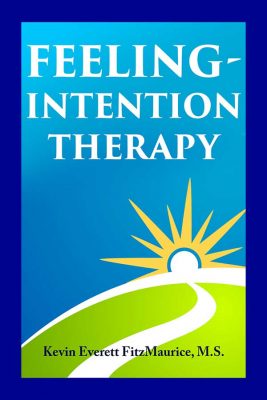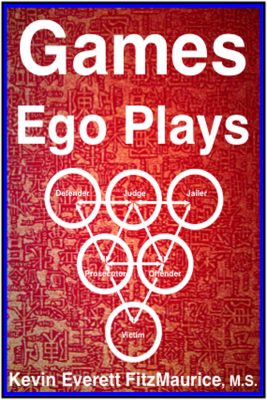Third Question for Counseling
- Garden will teach you an easy and effective Cognitive Behavioral Therapy (CBT & REBT) system.
Third question for counseling or psychotherapy is to understand how to stand the pain. To do the work, you must be able to withstand pain.
- Read to learn the best self-help system using CBT.
- A modern system with the best understanding of feelings, long-lasting results, and fast.
- Third question for counseling will make perfect sense after reading this book.
Third Question for Counseling
The third question for counseling is:
- How do you motivate yourself to stand the pain of having your ego exposed to the light and endure until the end of your ego?
- Are you willing and able to bear psychological pain?
- What do you need to do to get ready to withstand emotional pain?
Third Question for Counseling
NEED & DESIRE
- Do you need to change your thinking and choosing systems?
- Articulate that need.
- For example, “I need to keep my marriage,” “I need to get over my self-defeating addiction,” “I need to keep my job,” “I need to get over my depression, fear, anxiety, guilt, anger,” “I need to stop procrastinating,” etc.
- Do you desire a different life, a different way of relating, a better way of feeling, a more effective way of communicating, more productive relationships, an ability to take risks, peace of mind, emotional skills, a spiritual life, a new career, better health, better coping?
- Write those down.
Third Question for Counseling
GOALS & PLAN
- Based on your written needs and desires, write down your goals. Write down both short-term and long-term goals.
- Based on your goals, write down your step-by-step plans to meet those goals.
- Write out plans for both your short-term and your long-term goals.
- Break down the plans into daily, weekly, monthly, etc.
Third Question for Counseling
ACTION & SUCCESS
- Record the actions that you take each day to meet both your long-term and short-term plans to meet your goals.
- Learn to practice time management.
- Record your successes in completing your plans and goals.
- Focus on the positive and eliminate the overly negative.
Third Question for Counseling
MOTIVATION
- Reward yourself for meeting your goals. Encourage yourself!
- Problem-solve ways to overcome the obstacles to meeting your goals.
- Start at the beginning again: reevaluate needs, desires, goals, plans, etc.
Third Question for Counseling
THE “WHY” QUESTION
- Why will I continue to use correction to improve my thinking instead of treating correction as a personal attack?
- What reasons do I have that will motivate me to seek correction as my best friend?
- A modern system with the best understanding of feelings, long-lasting results, and fast.
- Third question for counseling will make perfect sense after reading this book.
Third Question for Counseling
Quotations Various Sources
Third Question Listed Alphabetically
“A fool is only a fool because he won’t see he is a fool.” —Kevin Everett FitzMaurice
“A fool remains a fool because he won’t see he is a fool.” —Kevin Everett FitzMaurice
“A man of genius makes no mistakes. His errors are volitional and are the portals of discovery.” —James Joyce
“Advice is what we ask for when we already know the answer but wish we didn’t.” —Erica Jong
“But if ye be without chastisement, whereof all are partakers, then are ye bastards, and not sons.” —Hebrews 12:8
“By honestly acknowledging your past errors, but never damning yourself for them, you can learn to use your past for your own future benefit.” —Albert Ellis and Robert A. Harper, A Guide to Rational Living, Third Edition, p. 194
“Correction is grievous unto him that forsaketh the way: and he that hateth reproof shall die.” —Proverbs 15:5
“Failure doesn’t have anything to do with your intrinsic value as a person.” —Albert Ellis and Robert A. Harper, A Guide to Rational Living, Third Edition, p. 206
“Faithful are the wounds of a friend; but the kisses of an enemy are deceitful.” —Proverbs 27:6
“For what glory is it, if, when ye be buffeted for your faults, ye shall take it patiently? but if, when ye do well, and suffer for it, ye take it patiently, this is acceptable with God.” —I Peter 2:20
“For whom the Lord loveth he chasteneth, and scourgeth every son whom he receiveth.” —Hebrews 12:6
“If we eliminated all errors, we would also eliminate much discovery, art, insight, learning, and creativity that results from facing errors.” —Kevin Everett FitzMaurice
“If ye endure chastening, God dealeth with you as with sons; for what son is he whom the father chasteneth not?” —Hebrews 12:7
“Justifying a fault doubles it.” —French proverb
“My son, despise not the chastening of the LORD; neither be weary of his correction:” —Proverbs 3:11
“No one wants advice–only corroboration.” —John Steinbeck
“Some people like my advice so much that they frame it upon the wall instead of using it.” —Gordon R. Dickson
“The trouble with most of us is that we would rather be ruined by praise than saved by criticism.” —Norman Vincent Peale
“There is no point to correction unless there is there is the possibility of correction.” —Kevin Everett FitzMaurice
“When receiving correction, the wise seeks to learn, and the fool seeks to justify with excuses.” —Kevin Everett FitzMaurice
“When you lose, don’t lose the lesson.” —Anonymous
Third Question for Counseling
Quotations from Scripture on Counseling
Listed Biblically
“A wise man will hear, and will increase learning; and a man of understanding shall attain unto wise counsels:” —Proverbs 1:5
“Where no counsel is, the people fall: but in the multitude of counselors there is safety.” —Proverbs 11:14
“The way of a fool is right in his own eyes: but he that hearkeneth unto counsel is wise.” —Proverbs 12:15
“Deceit is in the heart of them that imagine evil: but to the counselors of peace is joy.” —Proverbs 12:20
“Without counsel purposes are disappointed: but in the multitude of counselors they are established.” —Proverbs 15:22
“Hear counsel, and receive instruction, that thou mayest be wise in thy latter end.” —Proverbs 19:20
“Every purpose is established by counsel: and with good advice make war.” —Proverbs 20:18
“Take counsel, execute judgment; make thy shadow as the night in the midst of the noonday; hide the outcasts; bewray not him that wandereth.” —Isaiah 16:3
“Extol not thyself in the counsel of thine own heart; that thy soul be not torn in pieces as a bull [straying alone.]” —Ecclesiasticus 6:2
“As timber girt and bound together in a building cannot be loosed with shaking: so the heart that is stablished by advised counsel shall fear at no time.” —Ecclesiasticus 22:16
“Give not over thy mind to heaviness, and afflict not thyself in thine own counsel.” —Ecclesiasticus 30:21
“A man of counsel will be considerate; but a strange and proud man is not daunted with fear, even when of himself he hath done without counsel.” —Ecclesiasticus 32:18
“And let the counsel of thine own heart stand: for there is no man more faithful unto thee than it.” —Ecclesiasticus 37:13
“Let reason go before every enterprize, and counsel before every action.” —Ecclesiasticus 38:33
“Gold and silver make the foot stand sure: but counsel is esteemed above them both.” —Ecclesiasticus 40:25
- A modern system with the best understanding of feelings, long-lasting results, and fast.
- Third question for counseling will make perfect sense after reading this book.
Third Question for Counseling
Related Pages of Free Information
- CBT, CT, & REBT Cognitive Psychotherapies: List Pages
- Coping Skills: Free Help
- Correction—My Friend or Foe?
- Counseling Issues: Free Help
- Ego & Self-Esteem Fast-Facts
- First Question in Counseling
- Emotional Responsibility: List Pages
- Exercises & Techniques: List Pages
- Feeling & Coping: Fast-Facts
- REBT (Rational Emotive Behavior Therapy): List Pages
- Second Question in Counseling
- Self-Esteem Issues: List Pages
- Unconditional Self-Esteem (USE): Defined
- A modern system with the best understanding of feelings, long-lasting results, and fast.
- Third question for counseling will make perfect sense after reading this book.
- Read and discover the best diagrams and maps of how people play games with your mind and heart.
- Read and discover how CBT, REBT, & Stoicism evolved into one system: STPHFR.
- STPHFR insights will be more practical and useful after reading this book.
Third Question: 6 Groups of Topics Menu
- 1. Pages by Topic
- 2. Fast-Facts by Topic
- 3. Quotations by Topic
- 4. Poems by Topic
- 5. Scripture by Topic
- 6. Websites by Topic
- Read and discover the world’s best breathing exercise for centering and peace of mind.
- Read and discover how CBT, REBT, & Stoicism evolved into one system: STPHFR.
- A modern system with the best understanding of feelings, long-lasting results, and fast.
- Third question for counseling will make perfect sense after reading this book.
Third Question: 10 Skills & Topics Menu
- 1. Coping Skills & Topics
- 2. Problem-Solving Skills & Topics
- 3. Communication Skills & Topics
- 4. Recovery Skills & Topics
- 5. Anger Skills & Topics
- 6. Blame Skills & Topics
- 7. Thinking Skills & Topics
- 8. Responsibility Skills & Topics
- 9. Counseling Skills & Topics
- 10. Praying Skills & Topics
- Read and discover the world’s best breathing exercise for centering and peace of mind.
- Read and discover how CBT, REBT, & Stoicism evolved into one system: STPHFR.
- A modern system with the best understanding of feelings, long-lasting results, and fast.
- Third question for counseling will make perfect sense after reading this book.





